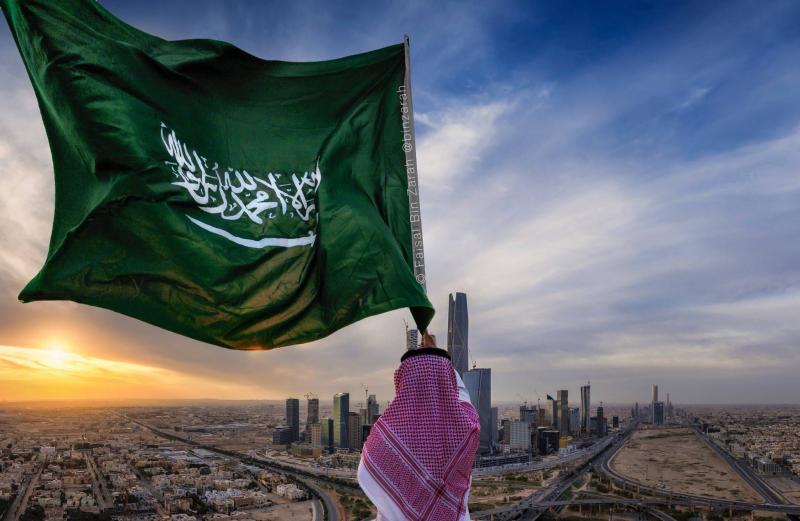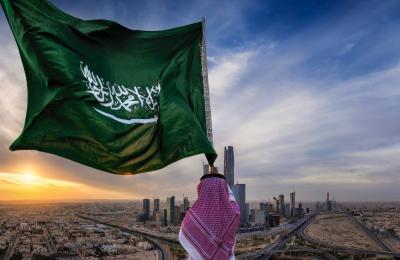The National Day of the Kingdom of Saudi Arabia is a profound memory lived by every citizen on this land. They draw inspiration from the long journey of building and sacrifices, reflecting on how the Kingdom was 93 years ago and how it has transformed today, thanks to the efforts of the sons of King Abdulaziz, leading to the prosperous era of the Custodian of the Two Holy Mosques, King Salman bin Abdulaziz, and Crown Prince Mohammed bin Salman.
What the Kingdom has achieved under the umbrella of Vision 2030 is significant. Today, Saudi Arabia has become an economically strong nation, boasting a formidable soft power that has manifested in the entertainment sector, which records new achievements and successes daily, alongside remarkable strides in sports that have transformed the Saudi league into a globally watched competition.
The bundle of successes in the Kingdom would not have been realized without the efforts of the founder, King Abdulaziz bin Abdulrahman, who laid the foundations for building Saudi Arabia on strong and principled bases, resulting in a nation of the size of an Ummah, equipped with aspirations and dreams that it seeks to translate into tangible reality.
As Saudis commemorate the 93rd National Day on September 23 each year, they recall significant moments from their history, tracing a lengthy timeline that covers over a century, starting from the third phase of foundation led by King Abdulaziz when, at the age of less than twenty, he decided to return to Riyadh and reclaim the kingdom of his forefathers. The retrieval of the capital carries significant implications, marking the first cornerstone in the establishment of Saudi Arabia, which now has a global presence and has become a pillar in the international equation.
Subsequent to him, his sons continued the phases of modernization and construction during the reigns of Kings Saud, Faisal, Khalid, Fahd, and Abdullah, leading up to the era of "modernization" and the construction of a future state under King Salman bin Abdulaziz and his Crown Prince, Chairman of the Council of Ministers, Mohammed bin Salman.
Despite the significant challenges in the current landscape, Saudi Arabia has succeeded under the current leadership in marking a noteworthy presence in the international equation, building a future state, and shaping its policies in a balanced manner characterized by determination and firmness in facing events. The Kingdom is committed to justice, upholding rights, and placing development and modernity among its foremost concerns, as reflected in various projects aimed at uplifting the country to broader horizons of development. Since ascending to power, King Salman bin Abdulaziz has outlined the features of his reign through remarkable decisions that map the pathway to the future while preserving the previous achievements of his predecessors.
Just as the founding king Abdulaziz embodied wisdom and the traits of a successful, skilled, and courageous leader, Saudi King Salman has followed in his father’s footsteps, employing similar tools aligned with circumstances and events. He has emphasized this since taking power, stating, "Our Arab and Islamic nation is in desperate need of unity and solidarity today. We will continue in this blessed land, chosen by God as the starting point for His message and the Qibla for Muslims, our journey to embrace all that ensures unity of ranks, gathers the voice, and defends our nation's causes, guided by the teachings of our Islamic religion, which is a religion of peace, mercy, moderation, and balance."
Crown Prince Mohammed bin Salman possesses "leadership charisma." Since entering the political arena, he has addressed a range of complex political, economic, developmental, intellectual, and social issues with local, regional, and international dimensions. He has successfully established a solid foundation for launching a new policy for his country, dealing with both reality and the future through a clear strategy that exceeds traditional proposals and emotional, temporary solutions, through institutional frameworks and actions. The Crown Prince has initiated notable works and decisions that have become a framework for future endeavors, many of which have been realized in practice.
The Crown Prince's prime concern is to leverage the immense capabilities and resources of his nation, refusing to rely solely on oil as a singular income source from a commodity that is depleting and subject to price fluctuations. He sees a brilliant future awaiting the country, having reached the conviction that Saudis have only utilized 10% of their nation's potential, which possesses fertile and promising resources ready for exploitation, benefiting its citizens and the entire region. The strategic location of the Kingdom, situated between three straits that are among the most important waterways in the world, allows it to serve as a pivotal area among the three continents: Asia, Africa, and Europe.
In a comprehensive interview with Fox News political anchor Bret Baier from the city of Neom, Crown Prince Mohammed bin Salman declared that the Kingdom is "the biggest success story of the 21st century – the story of our time." The Crown Prince noted that Saudi Arabia is currently the fastest-growing country across all sectors. He stated, "Our goal is always to make Saudi Arabia the best and turn challenges into opportunities," adding that "Vision 2030 is ambitious, and we have achieved its targets faster than anticipated, setting new targets with even greater ambitions." The Crown Prince elaborated that "Saudi Arabia achieved the fastest growth in GDP among the G20 nations for two consecutive years."
Additionally, the Saudi Crown Prince mentioned that the Kingdom sought to join the "Group of Seven," but some countries wanted to impose conditions. He emphasized, "I focus my time on what serves Saudi Arabia and its people," adding that "the Saudi people believe in change, and they are the ones driving it... I am one of them." He noted that "our investment in tourism has raised its contribution to GDP from 3% to 7%," and added that tourism in Saudi Arabia "attracted 40 million visits... and we are targeting 100 to 150 million by 2030."




